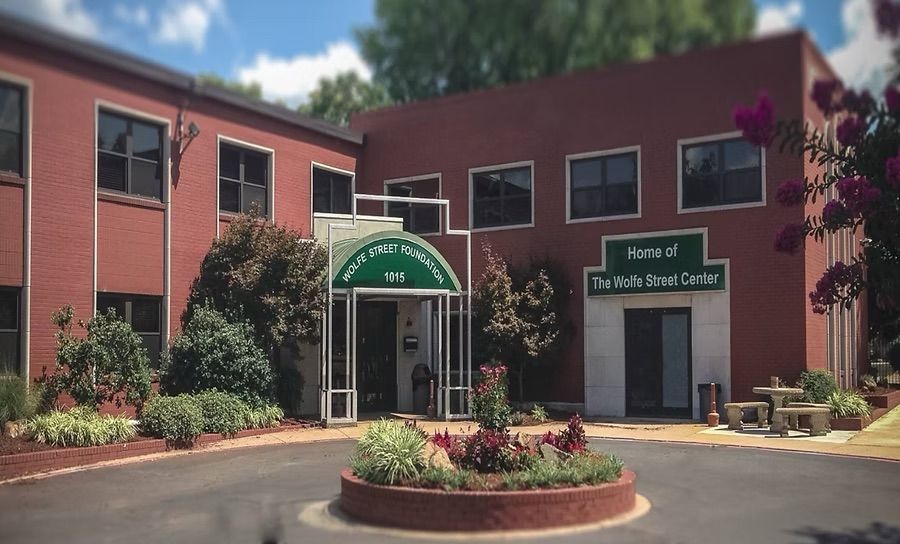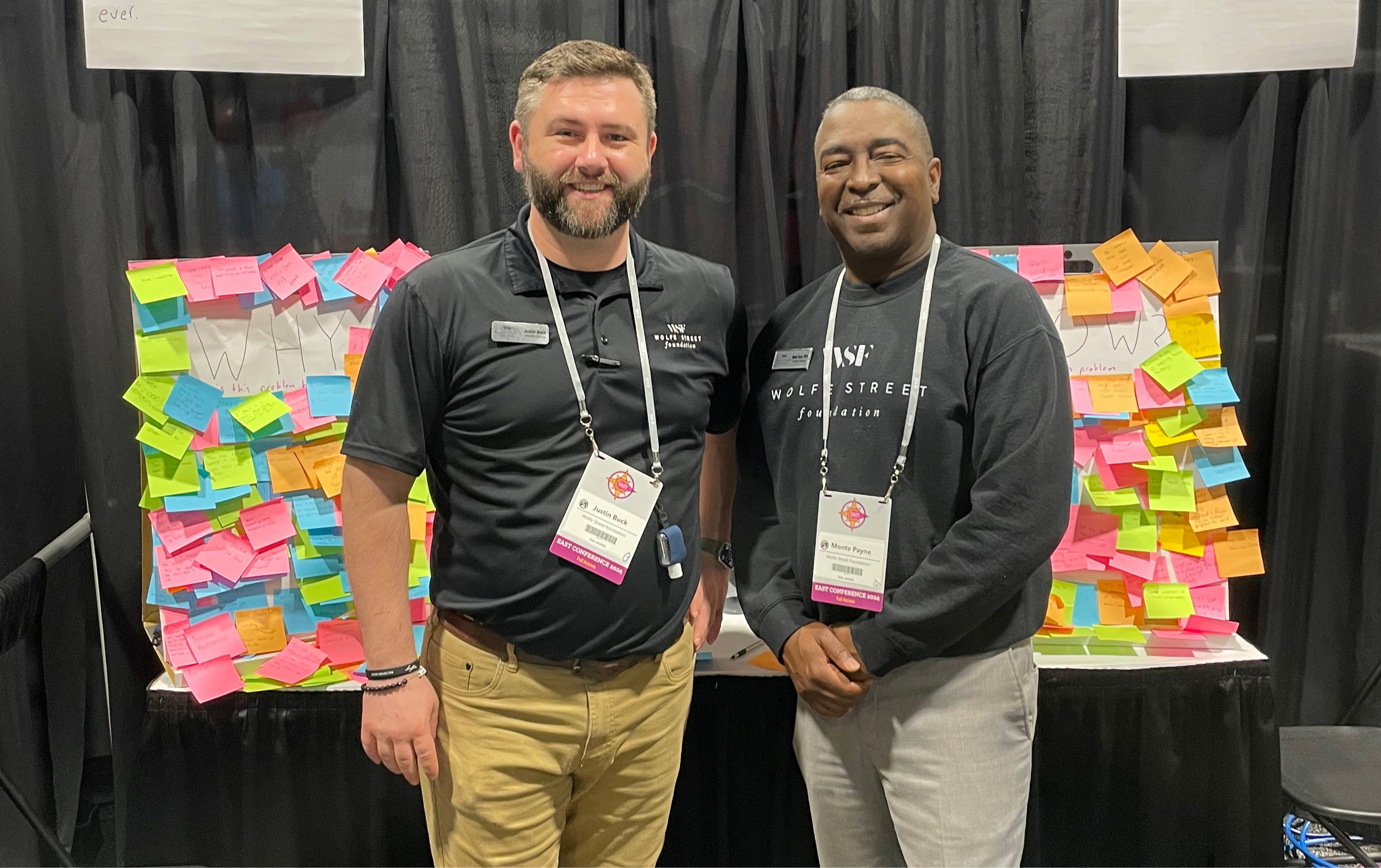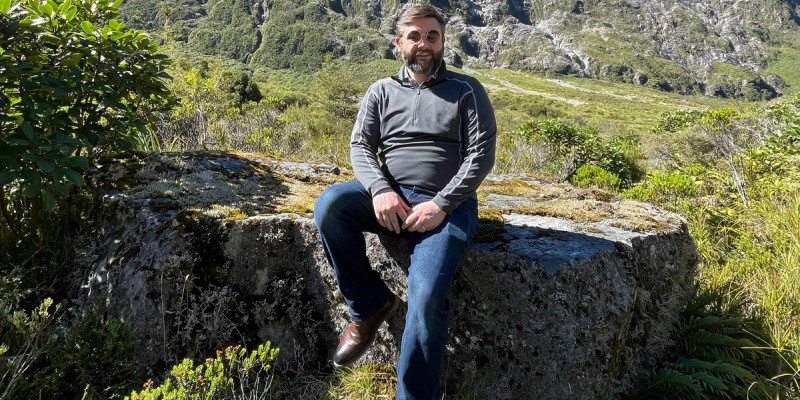The Wolfe Street Foundation – Arkansas's oldest and largest nonprofit recovery resource – is a vital reprieve nestled in the heart of Little Rock. As the host to an extensive list of recovery and 12-step programs alongside recovery residences and a youth empowerment program, the organization has continued to evolve to meet the needs of the ever-shifting addiction landscape. With initiatives like one-to-one peer recovery support services, they’ve equipped themselves to address rapidly evolving challenges like synthetic opioid dependency as fentanyl and other analogues spread through local Arkansas communities.
The nonprofit is led by executive director Justin Buck – an Arkansas native who’s sustained a lifelong passion for nonprofit initiatives to heal local communities. After losing multiple family members to suspected overdoses and the position opened for executive director at The Wolfe Street Foundation, applying to the role made perfect sense as he saw the intangible value of an organization whose resources could save lives.
Since 2021, Buck has steered the Wolfe Street Foundation through a new decade with sharp insights that not only continue to strengthen the foundation of his nonprofit, but create keen insights on how fellow organizations and government entities can band together to address addiction with a unified purpose.
End Overdose spoke with Buck about his background, how the Wolfe Street Foundation continues to evolve, and his ultimate vision for recovery in Arkansas. If you’re based in Arkansas and are interested in learning more about the Wolfe Street Foundation, head over to their official website here.
Can you tell us about your background and early days of work experience in Arkansas?
I’m a life-long, fourth or fifth-generation Arkansan. I grew up in Garland County - still the leader in Arkansas for overdose mortality and a hotspot for methamphetamine. My dad had a small business that taught me early how to sell just about anything to just about anybody; I sold my first pocket knife when I was maybe 9 or 10. I always thought I’d leave Arkansas, but a whirlwind senior year in high school landed me at a local college with a child by age 19. I managed food service at an amusement park and fast-food restaurants, worked in special education, traveled as a pitch salesman, and wound up marrying into a family funeral business. When I un-married out of that family business, it was time for me to really understand who I wanted to be and what legacy I wanted to build.
What led you to pursue a career in the nonprofit world?
As I was struggling with what I wanted my life to mean, I decided that I really cared about two things: empowering young people and being of service to the community. Throughout my youth, I had always served on student councils, enjoyed leading people, and never shied away from speaking up when I thought something wasn’t quite right. In high school, I noticed that our local food pantry wasn’t serving meals on Saturdays because they didn’t have the volunteers or resources to do it. So I organized my student council and Mayor’s Youth Council to host a competitive food drive across the county and show up on Saturdays to serve lunch. And it worked! To this day, youth groups are still serving lunch shifts at that same food pantry. I realized that the right leader with the right motivations can make a big difference.
I decided to take two career paths at once, serving as a paraprofessional in special education classrooms and starting part-time at my local Habitat for Humanity affiliate. Neither of those jobs paid well, so I wound up waiting tables in the evening. Eventually, I found myself writing grants on contract and teaching 12th grade English. And then the door really opened for me: The school where I worked had massive budget issues that required a reduction in force. At the same time, I had a job offer to lead Court Appointed Special Advocates of Garland, Grant, and Hot Spring Counties. So it was decided: I was for the nonprofit life!
What led you to taking the role of Executive Director of Wolfe Street? How have you personally seen the effects of the addiction and overdose crisis?
In December, 2019, I got a text from my mom:
“Teri died :(“
I have a twin sister, a brother who is 11 years older than me, and a brother and sister (also twins) who are 13 years older than me. Teri was my oldest sister. She was a nurse and aspiring community-theater actress. She had the brightest smile and a big laugh. She gave tight hugs and had three beautiful babies. We pretty much lost touch with her when she moved to Arizona. Her addiction led to losing her nursing license - and just about everything else. She’d always pop up at holidays with her big smile, but we knew things were going from bad to worse. The last time I saw her, she said “Bubby, I’m doin’ better.” Later that year, I got the text from my mom. Like so many families, we don’t necessarily have all the answers. I know, beyond a shadow of a doubt, Teri’s death was drug-related. Not long after, her youngest son died from a suspected overdose.
Growing up, I thought my brothers’ keg parties and substance use were awesome - friends were always excited to come over, and even the frequent fist fights seemed to elevate the cool factor. But one thing often leads to another - and my middle brother went from selling weed to slinging coke to manufacturing and distributing methamphetamine. It became a nightmare for my whole family. I’ll fast forward more than a decade through some of the most traumatic experiences of my family’s life. Eventually, he wound up looking at serious prison time and somehow got sentenced to drug court. Today, he’s restored himself to our family and his own, settling down with his wife to raise his daughter. I’m proud of his redemption arc and the healing my family has experienced watching him become a great son, brother, and father.
Honestly, before I interviewed to lead the Wolfe Street Foundation, I had never heard of it. We started in 1982 as an AA Clubhouse. Wolfe Street is as world-famous as you can be in an anonymous program. But I wasn’t a member of AA and had never heard of Al-Anon.
I had been consulting and was ready to roll my sleeves up again. So as I did my research before interviewing for the Executive Director position, I kept thinking: “What if my family had had a community like this when we needed it?” As I got to know the organization, I fell in love with the mission.
During the interview, I found out that my hopes had arrived. It was September of 2021, and Wolfe Street needed a sleeves-up leader to rebuild and reinvent itself. I was ready to get to work!
Today, we continue to host 12 Step meetings, and we’ve opened up as a Recovery Community Organizations to embrace all pathways to recovery. From 6 am to 10 pm throughout the week, you can catch one of 63 support meetings hosted at our downtown Little Rock Recovery Community Center. We also provide Peer Recovery Support Services, nationally-certified Recovery Residences, and a Youth Empowerment Program.

What would you consider to be the core mission of Wolfe Street? What about that mission inspires you on a daily basis?
We break barriers and build bridges so Arkansans can achieve their full potential. At our core, we help people and families thrive in recovery.
It’s not enough to survive addiction, we have to find purpose and happiness as whole people. We’re also united by our lived experience. As a Recovery Community Organization, we are led by people in recovery. More than 70% of our Board of Directors and 90% of our staff have their own personal recovery stories. The rest of us are family members and allies. Our lived experience is entirely unique, and we are stronger when we recognize how those different perspectives position us to serve more people better. That’s what I want to do with my life: Empower people to achieve their full potential and lead a team strengthened by the diversity of our experience and united by a powerful shared purpose!
How would you evaluate the overdose and addiction landscape in Arkansas? What gaps can be filled with efforts by organizations like Wolfe Street?
Like the rest of the nation, Arkansas has experienced a decline in overdose deaths. We’re cautiously optimistic about that trend, but our eyes are wide open for the challenges that continue. Community resources remain widely under-funded, with no sustainable revenue source (like insurance billing for recovery support services) to sustain RCOs and other community-based organizations like Wolfe Street. It’s not too much better for treatment and other organizations who are able to bill: Arkansas has some of the lowest reimbursement rates for clinical addiction care in the country. Aside from these funding challenges, I would say that most communities have their hearts in the right place - we all want people to get better - but don’t often have a coordinated recovery-oriented system of care.
Arkansas is not without its strengths. Recently, the state re-organized a branch of the Department of Human Services into the Office of Substance Abuse and Mental Health with a dedicated recovery unit. That office has been coordinating with RCOs across the state and has allocated some block grant dollars to support and expand RCOs to meet the challenge of a heavily rural state struggling with high overdose mortality rates in more rural counties. Arkansas also has a robust Peer Recovery Support Specialist workforce - people with lived experience who have been trained by the state to provide community-based, nonclinical services and resources. Hundreds of people have been trained for certification, but the jobs funded in the field are relatively few and far between.

What do you envision for the future of Wolfe Street and recovery + overdose prevention in Arkansas as a whole?
As the landscape continues to shift and change, we have to find ways to collaborate rather than compete. It will require bold creativity and deep trust. Traditional recovery organizations - like the Wolfe Street Foundation - must embrace and celebrate great, evidence-based harm reduction organizations. We must activate the grassroots to advocate - because we can’t go back! The Wolfe Street Foundation has spent the last four years building youth and adult prevention and recovery solutions that are scalable and sustainable. Our goal is to find and fill the gaps across the state by either partnering with local community-based organizations or bringing resources to other counties - especially in rural communities. Over the next ten years, our great goal - by direct service or partnership - is to make sure that every county in Arkansas has access to effective prevention and recovery resources. And we’re committed to doing that work together!
Is there anything else you’d like to add?
Arkansas needs a coordinated recovery-oriented system of care with sustainable funding models (including public investment, grants, appropriated state funds, and insurance reimbursement) that treats substance use disorders like the life-long health challenge they are. I use that word challenge intentionally - because recovery is a call to find your best self.
For people to be able to define success for themselves and set and reach goals to achieve it, we all need to be developing systems of care that work long-term. That’s going to take time and strong working relationships. We have great people and great programs in the field, and we need policy change to align those resources for sustainable systems of care. Sometimes, “policy change” seems like a distant, removed, impersonal function - but it isn’t. In fact, it’s remarkably personal. It requires all of us paying attention, doing our part, and being willing to speak up. It requires us to build bridges and sometimes find unlikely partners. If you’re in Arkansas - anywhere in Arkansas - and you’re ready to roll up your sleeves for overdose prevention and recovery, please reach out to us at the Wolfe Street Foundation. We’ll plug you in to local and state recovery and advocacy efforts. Because it doesn’t matter if you have a trust fund or a minimum-wage job, YOU have tremendous potential. And together, WE can make tremendous change!
